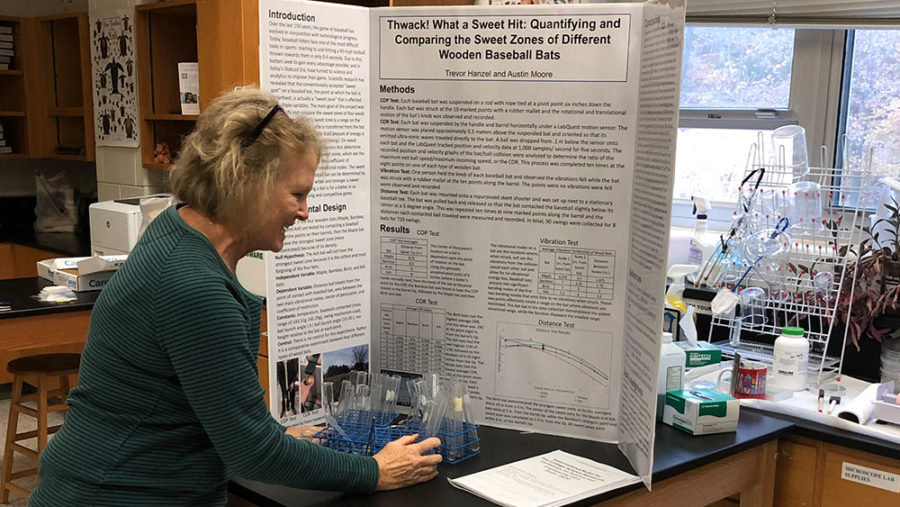The Good ISR
Independent Science Research is a unique class with a unique premise
Be careful of the context when you mention ISR in Potomac Falls; there are two, and one of them has a much better reputation. Of course, this ISR is the Independent Science Research class, a highly demanding elective that requires students to come up with their own research project and get results by the end of the year. Often challenging and requiring a lot of, well, research, this class is one of the most unique at PFHS because the students essentially get to choose what they do in class, continuing their endeavor throughout the whole year.
Teaching ISR can be especially challenging. “It is important to keep students motivated. Sometimes they slack off a bit and I need to get them moving again,” said Cathy Whitlow, a science teacher at PFHS who teaches ISR. “It is definitely a class where students need some self-motivation and can work on their own.”
Whitlow serves more as a “coach” to the kids, letting them guide themselves through their own projects. The students come with different levels of capability, but the class gives them valuable skills to build upon their projects, as well as careers in the future.
When kids do have the self-motivation to do their work, however, class isn’t as challenging as it is for the teacher. “ISR is a relatively easy class as long as you’re able to complete research papers on time,” said senior Shang Andrews, who is taking the class.
ISR is also a great opportunity to prepare students “eager to get into the research field,” said Andrews. For his project, Andrews is doing research on Microbial Fuel cells and cost-effective ways to use them, and intends to locate bacteria in the Potomac River to build fuel cells for them to live in and produce energy.
Many projects in the class stand out as particularly interesting. “I have been impressed by the topics this year being investigated,” said Whitlow. Some examples include examining the health effects of using e-cigarettes, the effect of microplastics on the environment, and even relationships between gut microbes and the brain.
“[There are] so many great projects…I felt this way last year too,” said Whitlow. The projects undertaken in the class are definitely occasionally out of the ordinary, but these are the experiments that often teach the most, combining several elements of different science fields to solve problems through creativity and teamwork.
ISR is a class that can be difficult if a student doesn’t have the motivation or self-discipline to do their work. But it can also be a rewarding, eye-opening experience, providing the opportunity for students to explore their interests in the varied fields of science, perhaps growing future leaders and innovators who may change the world for the better one day.


